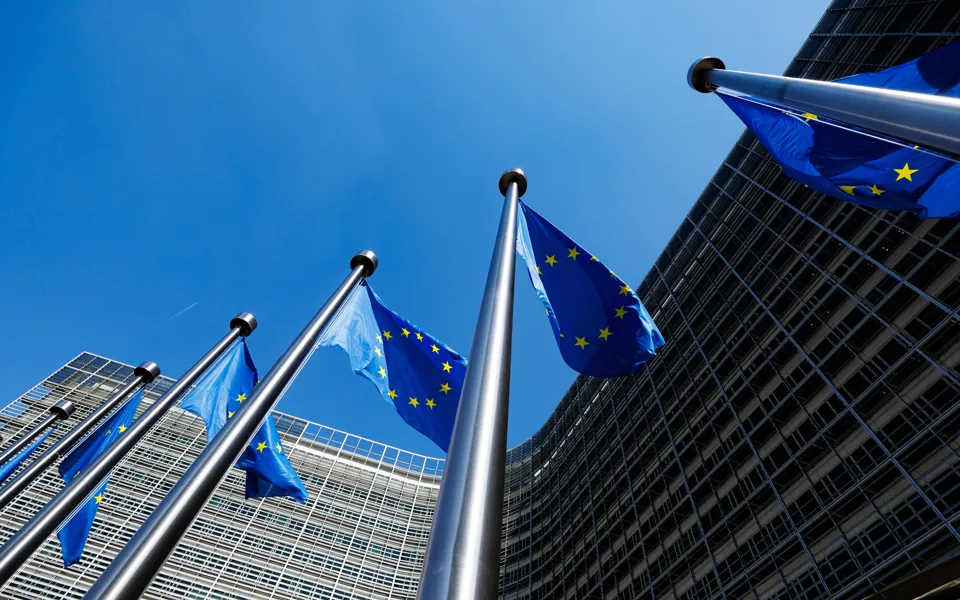
All aboard the EU Omnibus: how will it impact your business?
20 Feb 2025
The European Union (EU) is on the verge of introducing significant regulatory overhaul known as the EU Omnibus simplification packages, with five planned in total. This initiative aims to streamline and simplify existing sustainability reporting requirements, amending multiple directives and regulations related to the same subject or field, which have been a source of complexity and burden for businesses both within and outside the EU.
What is the EU Omnibus Simplification Package?
The EU Omnibus simplification package is part of the broader EU Competitiveness Compass, published in January 2025, which seeks to boost EU innovation, decarbonisation, and economic security, while maintaining high ESG standards. This was followed by the European Commission publishing its 2025 work programme on February 11, 2025, which outlines actions aimed at improving EU competitiveness, enhancing security, and strengthening economic resilience.
The first omnibus package of work has the goal to streamline and simplify the reporting requirements of the three key sustainability directives: the Corporate Sustainability Reporting Directive (CSRD), the Corporate Sustainability Due Diligence Directive (CSDDD), and the EU Taxonomy. However important to note that the exact scope of the Omnibus is also being evaluated so could include other Green Deal related regulations and directives.
- Corporate Sustainability Reporting Directive (CSRD) : Requires companies to report on their sustainability impacts, risks, and opportunities against the European Sustainability Reporting Standards (ESRS). Aims to provide comprehensive and transparent information to stakeholders.
- Corporate Sustainability Due Diligence Directive (CSDDD): Mandates companies to identify and address adverse human rights and environmental impacts in their operations and value chains.
- EU Taxonomy Regulation: Establishes common definitions for environmentally sustainable economic activities to direct investments towards these activities.
The first omnibus package of potential legislative changes is initially planned for publication on the 26th February 2025, however the exact date is uncertain with the work programme indicating Q1 2025.
Most important for businesses to monitor, are the main changes related to CSRD.
Narrowing the CSRD scope and reduction of administrative burden
A new company category between "large companies" and SMEs is proposed for mid-small cap companies. This would mean that a proportion of those companies that fall under the “large company” definition under CSRD could fall outside of scope, into this new category. The Omibus aims to reduce EU reporting obligations for all companies by 25% and for SMEs by 35%, with companies in the new category likely benefiting from simplification similar to SMEs.
- If you currently fall under the “large company” definition we advise to keep a close eye on your scoping threshold and any developments on this new mid-small cap category to evaluate if you may be eligible.
- If you are likely to remain in the “large company” category, maintain comprehensive reporting systems, look for efficiency gains to reduce administrative burden even if under the full ESRS requirements. For example consider how to streamline data collection and reporting processes to achieve a 25% reduction target.
- If it's likely your company may be eligible for the new “mid-small cap company”, develop flexible reporting frameworks to scale up and down and identify core sustainability metrics that provide business value beyond compliance.
The key is to prepare for reduced requirements while maintaining the ability to provide meaningful sustainability information to stakeholders. Focus on building efficient, scalable systems that can adapt to changing requirements while delivering business value beyond compliance.
Postponement implementation and consistency across member states
Following political pressure, it is speculated that the implementation might be delayed giving companies reasonable time to prepare and ensure their processes meet the required standards. However, postponing the implementation of sustainability reporting is challenging due to the integration of CSRD already into national laws in several EU countries. Changes in scope or transition periods could create uncertainty between the adoption and transposition of new regulations across the member states. There are current business risks for those that have invested and also political risks that some of the regulations are not fully transposed into national law, therefore providing an unfair playing field for businesses depending on where they operate.
- Continue to progress with your CSRD implementation plans, maintain current compliance momentum. Don't pause existing sustainability initiatives and compliance efforts. Even with potential delays, the underlying trend toward sustainability reporting remains strong. Continue with planned implementations, particularly meeting current CSRD requirements in countries where its already law, while staying flexible enough to adapt to changes.
- Build modular reporting systems that can be adjusted as requirements change and maintain awareness of different national implementation timelines.
- Engage with industry associations and regulatory bodies to stay informed of developments.
The key is to maintain progress while building flexibility into your systems and processes. This approach helps protect current investments while preparing for future changes, ensuring your business can adapt to whatever regulatory framework emerges.
Opportunities and challenges
The timing of these changes presents both opportunities and challenges. While many businesses welcome the reduced administrative burden, those who have already invested heavily in compliance systems face uncertainty. All companies, both within the EU and those outside the EU but doing business in the EU, will benefit from the reduced amount of data point reporting and simplification of compliance. However, despite simplification efforts, sustainability reporting isn't being eliminated - it's being redesigned to balance competitiveness with environmental goals.
For businesses, the path forward requires careful attention to these evolving requirements while maintaining existing sustainability practices. The challenge lies not in abandoning current efforts, but in adapting them to fit a more streamlined regulatory framework focused on practical implementation and competitive advantage.
The final shape of these reforms will emerge through continued dialogue between EU institutions, businesses, and stakeholders. Success will depend on finding the right balance between reducing administrative burdens and maintaining meaningful environmental oversight in an increasingly competitive global marketplace.
Ricardo’s experts can keep you up to date and help you to navigate the latest regulatory changes. We can work with you to develop a flexible and forward-facing strategy that will help you to confidently accelerate your sustainability journey.




 Ricardo Sustainability, Clean Energy and Environment
Ricardo Sustainability, Clean Energy and Environment




